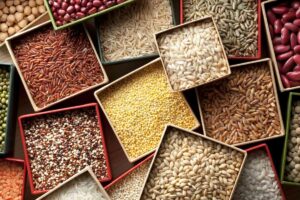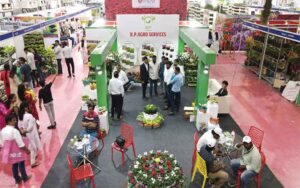Horticulture: Bridging the gap of nutritional security of the country
NEW DELHI: Horticulture production has increased 13 times from 25 million tonnes in 1950-51 to 331 million tonnes during 2020-21, which is more than the food grain production. Constituting 18% of the area, this sector contributes about 33% of the gross value to the agricultural GDP. The sector is being considered as a driver of economic growth and is gradually turning into an organized industry linked to seed trading, value addition and exports.
Horticulture has a significant contribution in the export of agricultural products worth more than Rs. Four lakh crore. The central government is seemingly giving priority to agriculture and farming, therefore, in the budget of the year 2023-24, many major provisions have been made for Agriculture and Farmers’ Welfare. The objective of the budget is inclusive and comprehensive development of farmers, besides the poor and middle class, women and youth. It emphasizes on promoting modernization of Horticulture and Agriculture sector by linking agriculture with technology so that farmers can get wider benefits in the long run.
According to Union Agriculture and Farmers Welfare Minister Narendra Singh Tomar, it is a well established fact that Horticulture plays an important role in doubling the income of farmers and providing essential nutritional security. Rapid increase in production and availability of Horticultural crops will help in bridging the gap of nutritional security of the country.
It may be recalled that Rs 2,200 crore has been allocated in the budget for the development of Horticulture sector, especially for Aatma irbhar (self-sufficient) clean plants programme. With this provision, efforts have been made to promote the availability of disease free, quality planting material for high value horticultural crops. Along with this, the Horticulture sector will also get huge benefits through the Cluster Development Programme.
The government has taken the initiative to make Natural Farming a mass movement, for which a provision of Rs 459 crore has been made. In 3 years, 1 crore farmers will be given financial aid for Natural Farming, for which 10,000 bio input research centers will be set up. Budget provision has also been made for farmers to make full use of technology. A Follow-On Public Offer (FPO) is a revolutionary step in the direction of raising the standard of living of Small and Medium Farmers, the benefits of which have started flowing to these farmers. Horticulture FPOs are also becoming beneficial for the farmers.
Calling upon the farmers to be helpful in reducing imports and increase exports and contribute in solving the challenges, he expressed confidence that horticulture fairs will create awareness among farmers/stakeholders about latest technologies on horticulture crops for sustainable production and increase the scope for processing and export promotion to make India a global player in the Horticulture sector.
Tomar has appreciated that Indian Institute of Horticultural Research (IIHR) being one of the premier institutes in the country, is known for conducting basic research in horticulture crops to ensure sustainable and economic development of farmers at large and the technologies developed at IIHR are contributing more than Rs. 30,000 crore annually in the ever-growing horticulture sector. The institute is working on 54 horticulture crops and has developed more than 300 varieties and hybrids of horticulture crops for the benefit of various stakeholders, which are popular in North-Eastern states and other regions.
The institute has done remarkable work by linking biodiversity with the livelihood of custodian farmers of jackfruit and tamarind and this model can be replicated to other horticultural crops. The Institute has started work on exotic fruit crops (Kamalam, Avocado, Mangosteen, Rambutan) which will help in reducing imports, as well as the new variety of watermelons developed by the Institute will help in reducing the import of its seeds. He urged upon the scientists to sincerely take it up as a challenge to reduce imports.
According to Tomar, under protected cultivation, pollination with the help of bees in melon and ridge gourd has impressed many people and it needs to be further increased for the benefit of hi-tech horticulture. Farm mechanization, from seeding to marketing, for onion production will help needy farmers. The effort to ensure availability of seed-planting material through SBI Yono Seed Portal is commendable. This has made it possible to reach the seeds of horticulture crops to the farmers of 28 states.

















